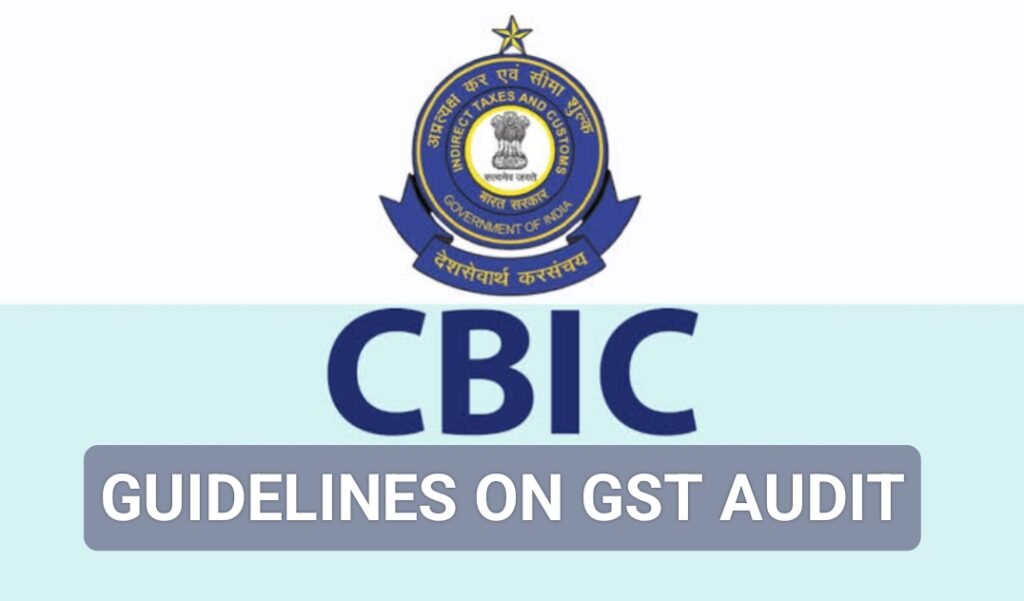The recent guideline emphasizes that, during the audit process, if a Principal Commissioner of CGST Audit encounters scenarios where taxpayers have followed prevalent trade practices based on specific interpretations of GST laws, which could lead to multiple understandings and potential litigation, such cases should be referred to the relevant policy wing of the board for clarification, before issuance of any Show Cause Notice.
India’s Central Board of Indirect Taxes and Customs (CBIC) has introduced new guidelines aimed at standardizing Goods and Services Tax (GST) audits and minimizing litigation. Tax experts have hailed this move as a significant step towards creating a more consistent and predictable tax environment for businesses across the country.
CBIC Directs Officers to Seek Clarity on Conflicting Tax Interpretations
In a recent directive, the CBIC has instructed GST officers to refer cases involving conflicting interpretations of tax laws to the board’s policy wing before proceeding with the issuance of show-cause notices. This approach is intended to ensure uniformity in tax assessments and prevent prolonged disputes that often arise due to inconsistent interpretations during audits.
The instruction emphasizes that during the audit process, if a Principal Commissioner of CGST Audit encounters scenarios where taxpayers have followed prevalent trade practices based on specific interpretations of GST laws, which could lead to multiple understandings and potential litigation, such cases should be referred for clarification. The referral should be made to the relevant policy wing of the board, either the GST Policy or the Tax Research Unit (TRU), before concluding the audit.
Expert Opinions Highlight Positive Impact on Business Environment
Tax professionals have welcomed the CBIC’s proactive measures, noting that they will contribute significantly to reducing uncertainty and compliance costs for businesses.
“This is a positive step towards creating a more predictable tax environment,” said Rajat Mohan, Executive Director at Moore Singhi. “By seeking clarity on ambiguous tax interpretations before initiating action, the CBIC is helping to reduce unnecessary litigation and fostering greater confidence among taxpayers.”
Echoing similar sentiments, Mahesh Jaising, Partner at Deloitte India, stated, “This proactive step, applicable to ongoing audits as well, ensures policy alignment, focuses on ease of doing business, and reduces unnecessary litigation by maintaining uniformity.”
Guidelines Aimed at Promoting Uniformity and Avoiding Unwarranted Litigation
The CBIC’s directive outlines specific scenarios where divergent interpretations of GST laws may arise. For instance, when an issue investigated by a Principal Commissioner is based on a particular understanding of the CGST Act, rules, notifications, or circulars that suggest non-payment or short payment of tax, but taxpayers have adhered to a common trade practice based on a different interpretation.
Read more at: Hero MotoCorp Gets over Rs. 17 Crore Tax Notice from Delhi GST Authorities
“In such cases, it is desirable that the zonal Principal Chief Commissioner make a self-contained reference to the relevant policy wing of the board, i.e., the GST Policy or Tax Research Unit,” the CBIC stated. This process should occur before the conclusion of the audit and prior to issuing any show-cause notice to promote uniformity and avoid unnecessary litigation.
A Step Towards Enhanced Compliance and Ease of Doing Business
The CBIC’s initiative is seen as a strategic move to enhance compliance and simplify the tax landscape for businesses operating in India. By addressing ambiguities in tax laws proactively and ensuring consistent interpretations across various cases, the board aims to reduce the burden of prolonged legal disputes and foster a more conducive environment for economic activities.
These guidelines are expected to not only streamline GST audit processes but also contribute to the overall objective of making India a more business-friendly destination by ensuring transparency and predictability in tax administration.
Access the related GST Instruction-No-03/2024
Also Read: IIT-Delhi Faces ₹120 Crore GST Demand on Research Funds: A Setback for Indian Education
Read More
Calcutta High Court Allows the Appeal Despite 66 Days Delay Because of Lack of Knowledge
54th GST Council Meeting Likely on September 9: Key Issues and Agenda

